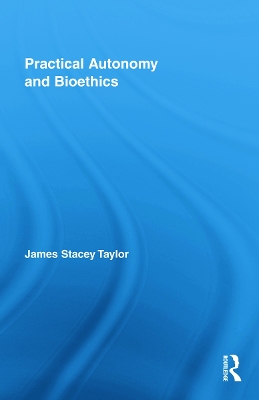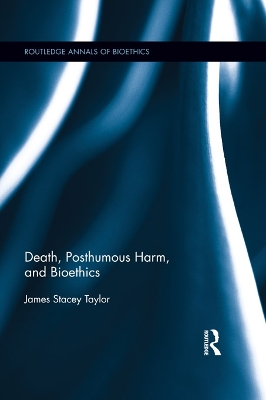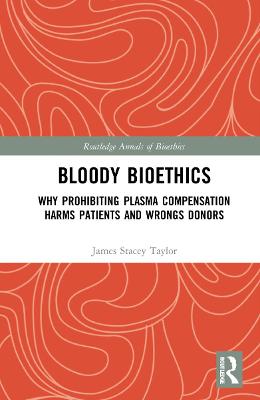Routledge Annals of Bioethics
3 total works
This is the first volume in which an account of personal autonomy is developed that both captures the contours of this concept as it is used in social philosophy and bioethics, and is theoretically grounded in, and a part of, contemporary autonomy theory. James Stacey Taylor’s account is unique as it is explicitly a political one, recognizing that the attribution of autonomy to agents is dependent in part on their relationships with others and not merely upon their own mental states. The volume is distinctive in its examples, which touch on the ethics of using inducements to encourage persons to participate in medical research, the ethical issues associated with the use of antibiotics, and the ethical basis for both patient confidentiality and informed consent.
Death, Posthumous Harm, and Bioethics offers a highly distinctive and original approach to the metaphysics of death and applies this approach to contemporary debates in bioethics that address end-of-life and post-mortem issues. Taylor defends the controversial Epicurean view that death is not a harm to the person who dies and the neo-Epicurean thesis that persons cannot be affected by events that occur after their deaths, and hence that posthumous harms (and benefits) are impossible. He then extends this argument by asserting that the dead cannot be wronged, finally presenting a defence of revisionary views concerning posthumous organ procurement.
This is the first book to argue in favor of paying people for their blood plasma. It does not merely argue that offering compensation to plasma donors is morally permissible. It argues that prohibiting donor compensation is morally wrong-and that it is morally wrong for all of the reasons that are offered against allowing donor compensation.
Opponents of donor compensation claim that it will reduce the amount and quality of plasma obtained, exploit and coerce donors, and undermine social cohesion. James Stacey Taylor argues that empirical evidence demonstrates that compensating plasma donors greatly increases the amount of plasma obtained with no adverse effects on the quality of the pharmaceutical products that are manufactured from it. Prohibiting compensation thus harms patients by reducing their access to the medicines they need. He also argues that it is the prohibition of compensation-not its offer-that exploits donors, fails to respect the moral need to secure a person's authoritative consent to her treatment, and prevents donors from giving their informed consent to donate. Prohibiting compensation thus not only harms patients-it wrongs donors.
Bloody Bioethics will appeal to researchers, advanced students, and medical professionals interested in bioethics, moral philosophy, and the moral limits of markets.


